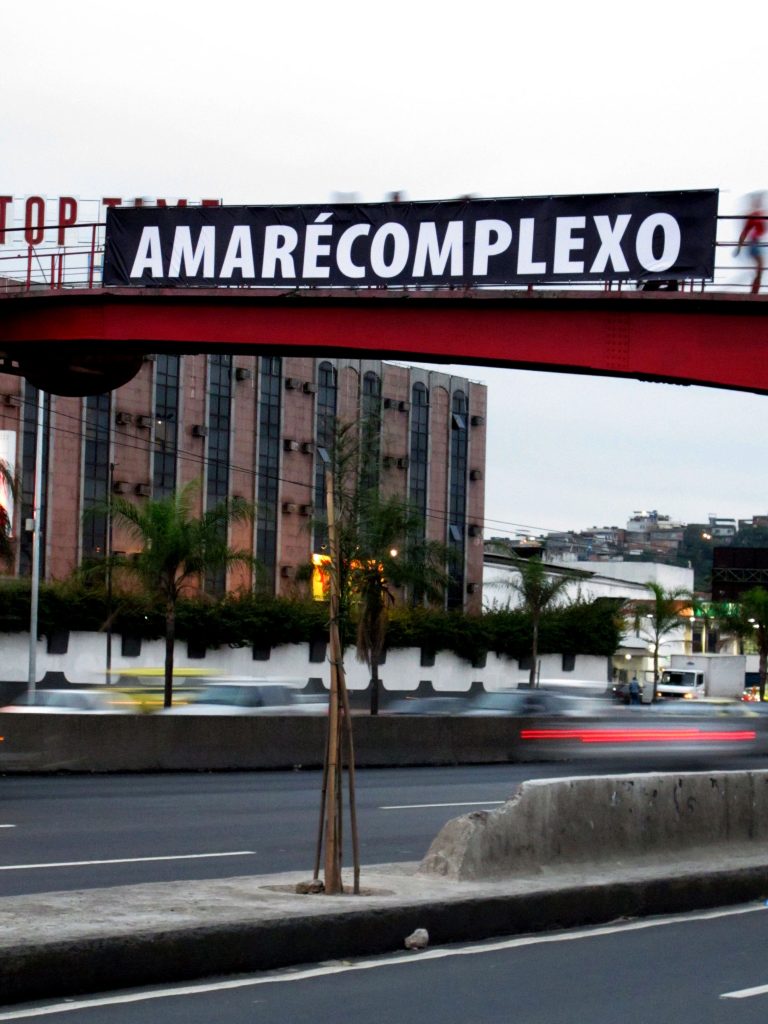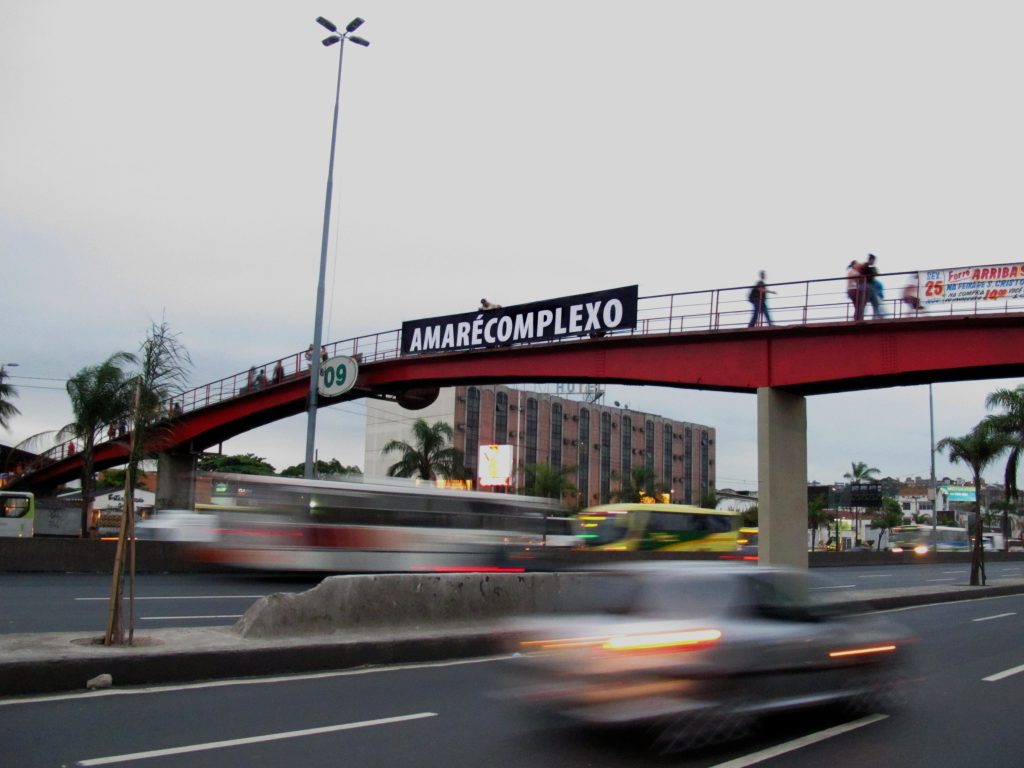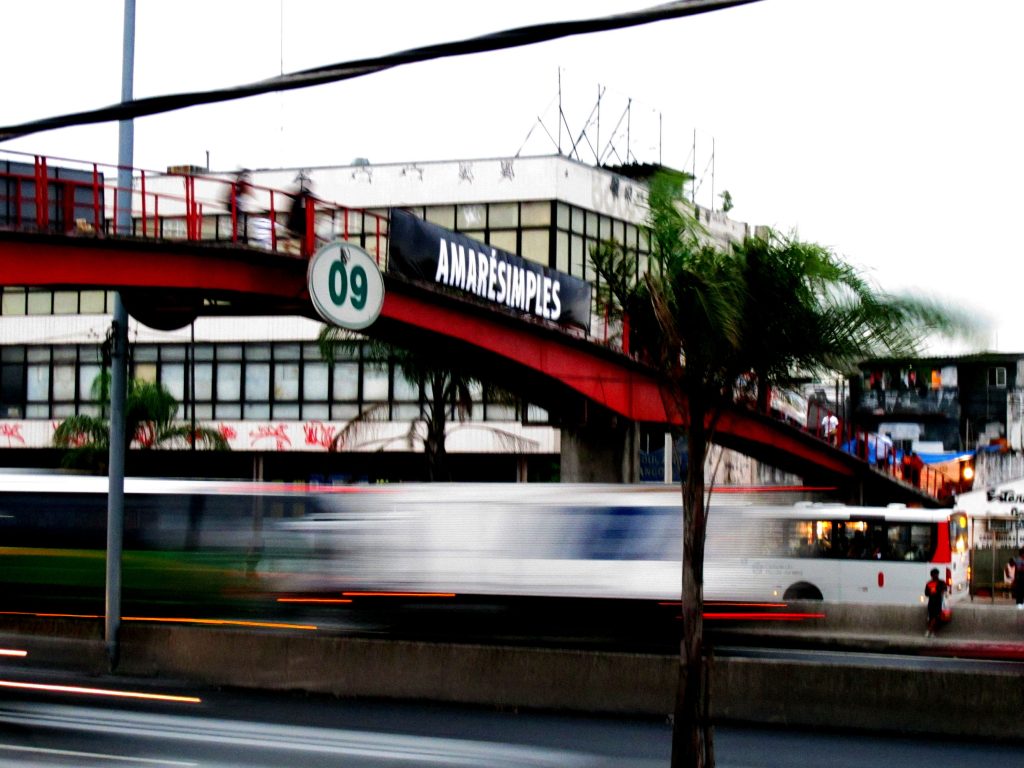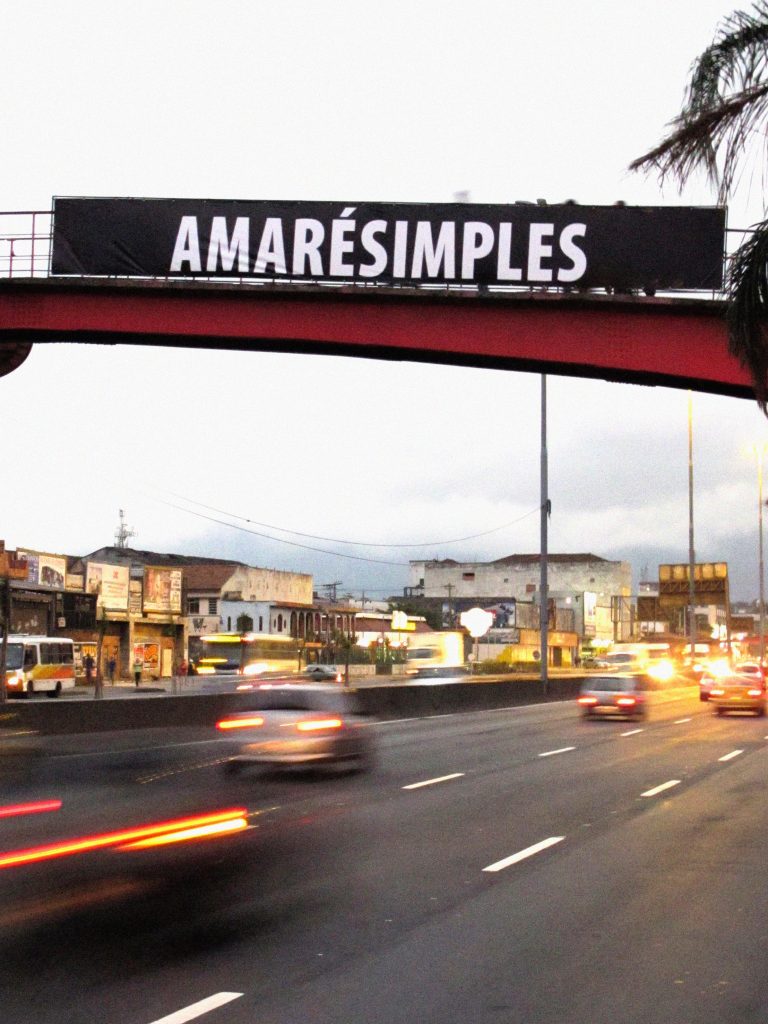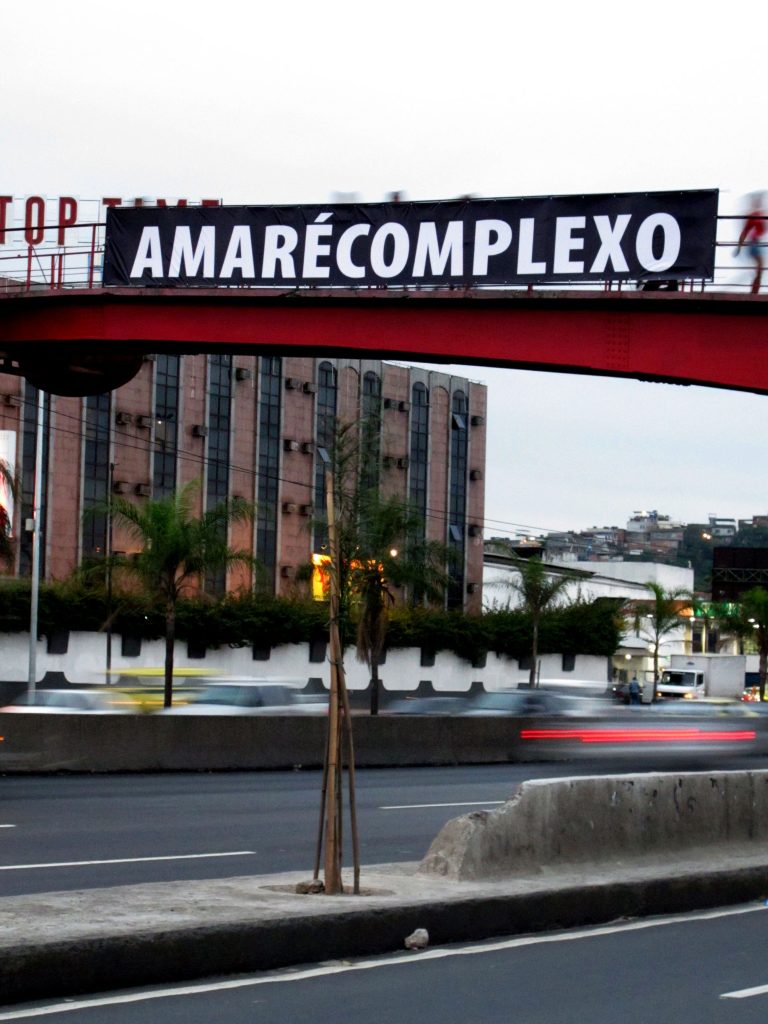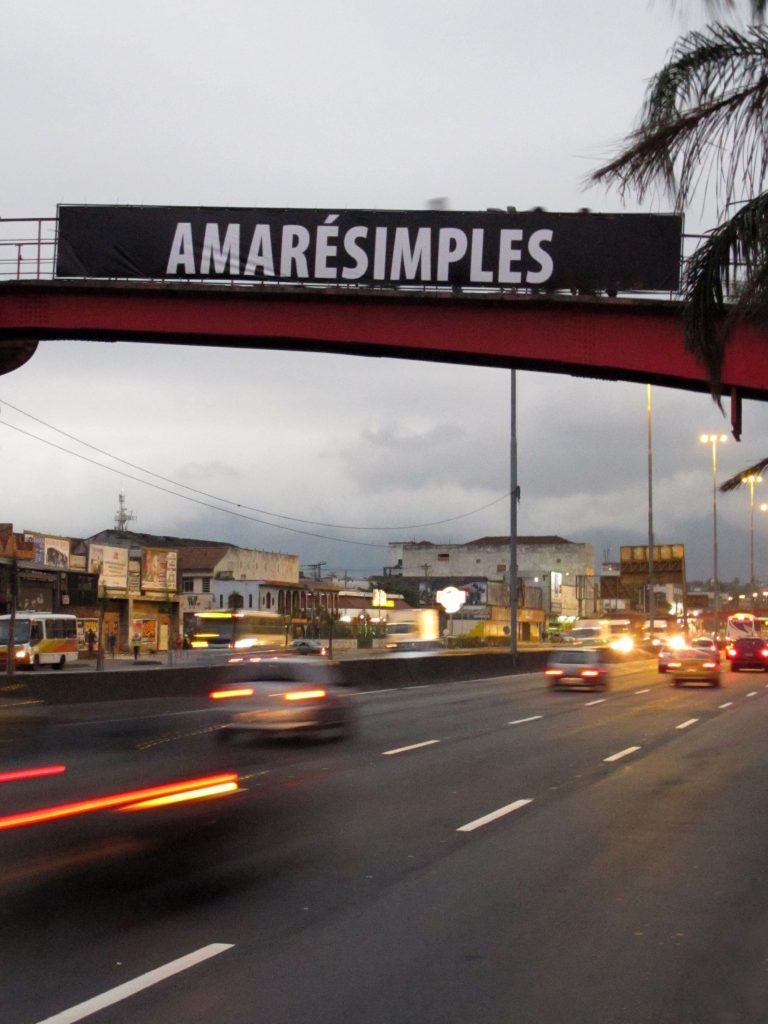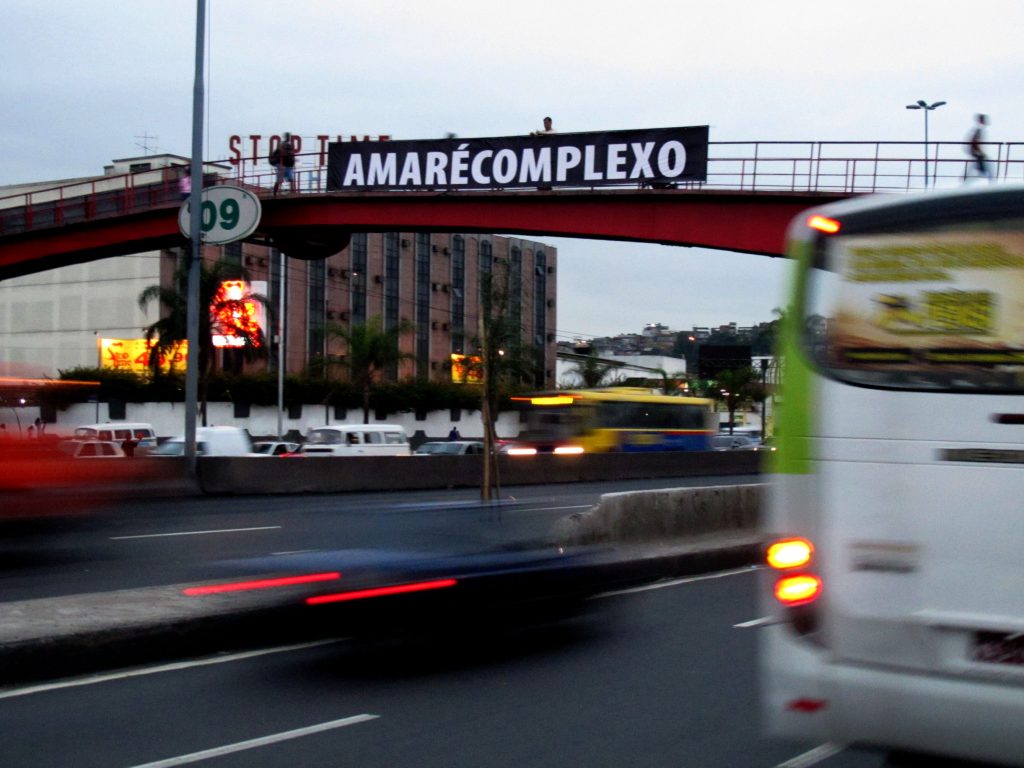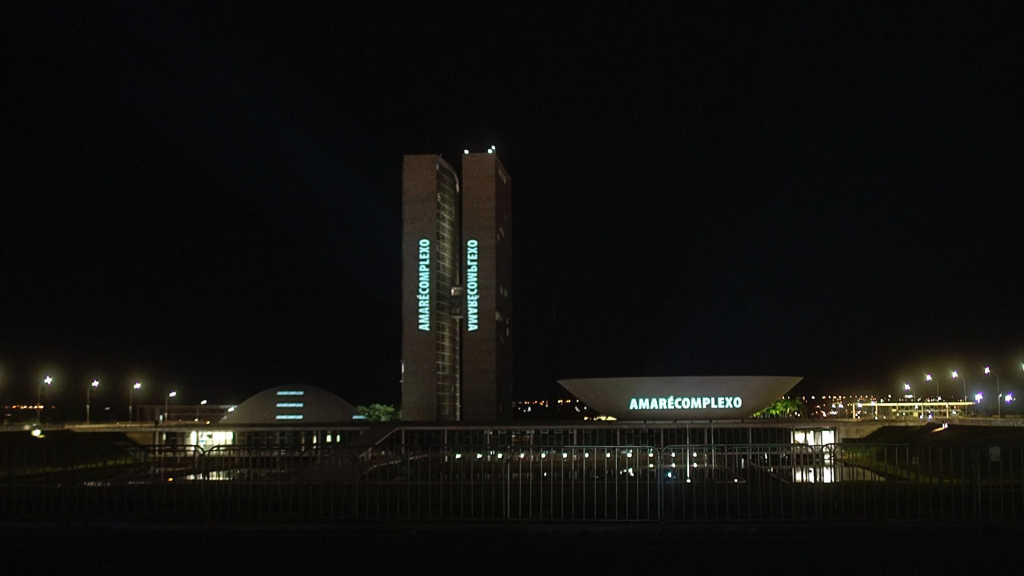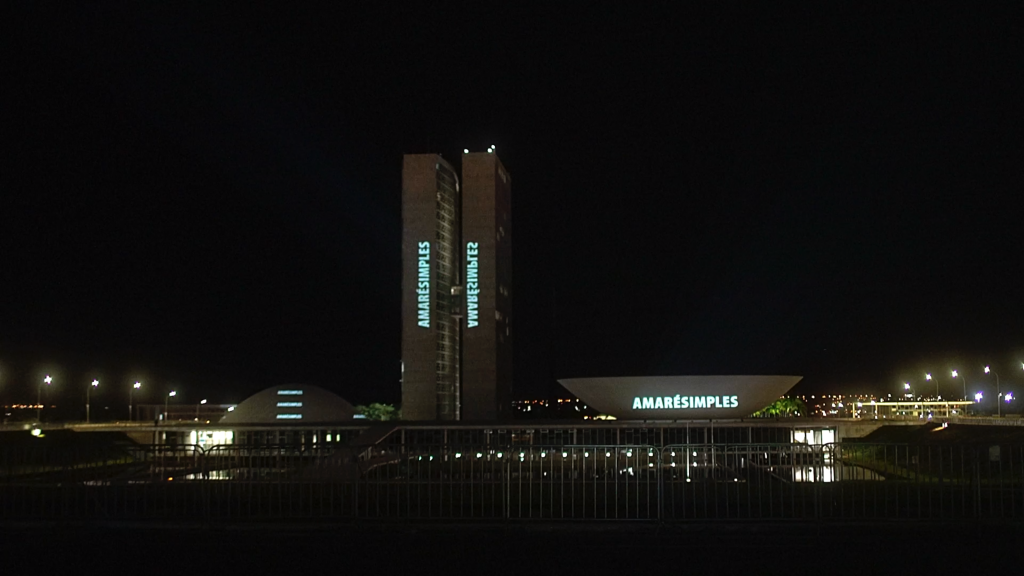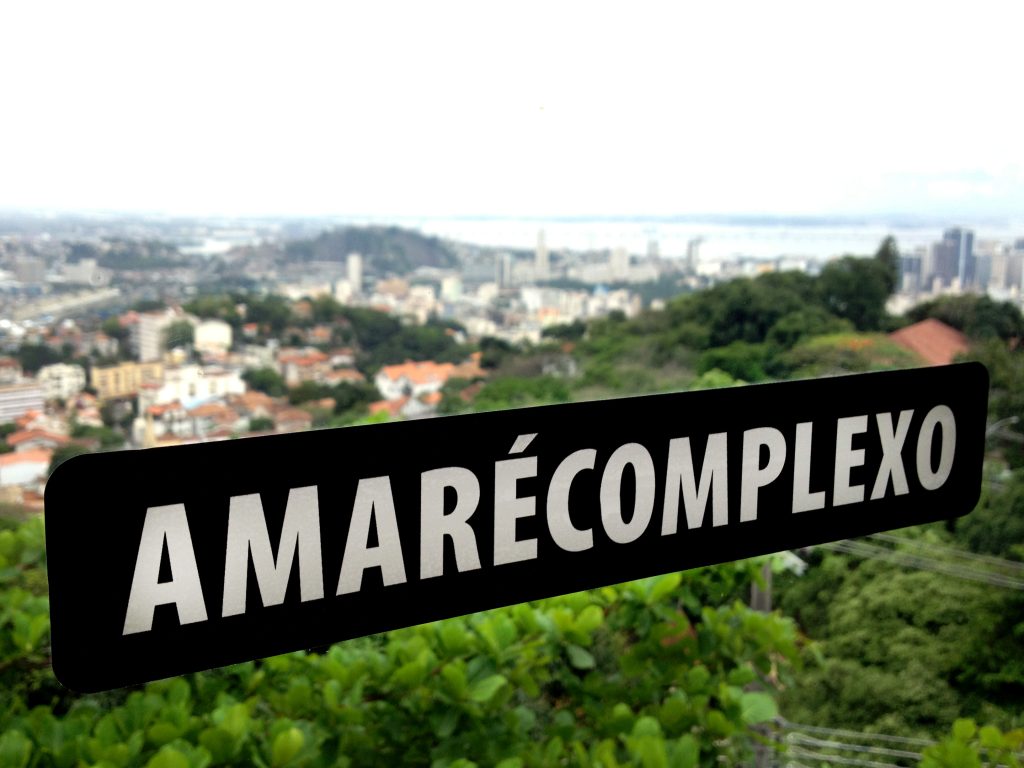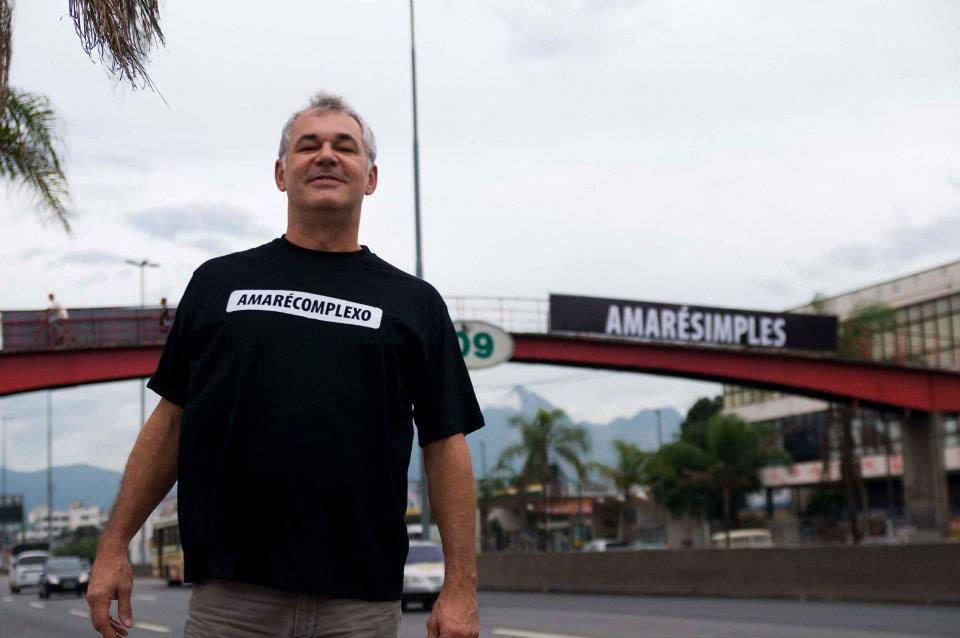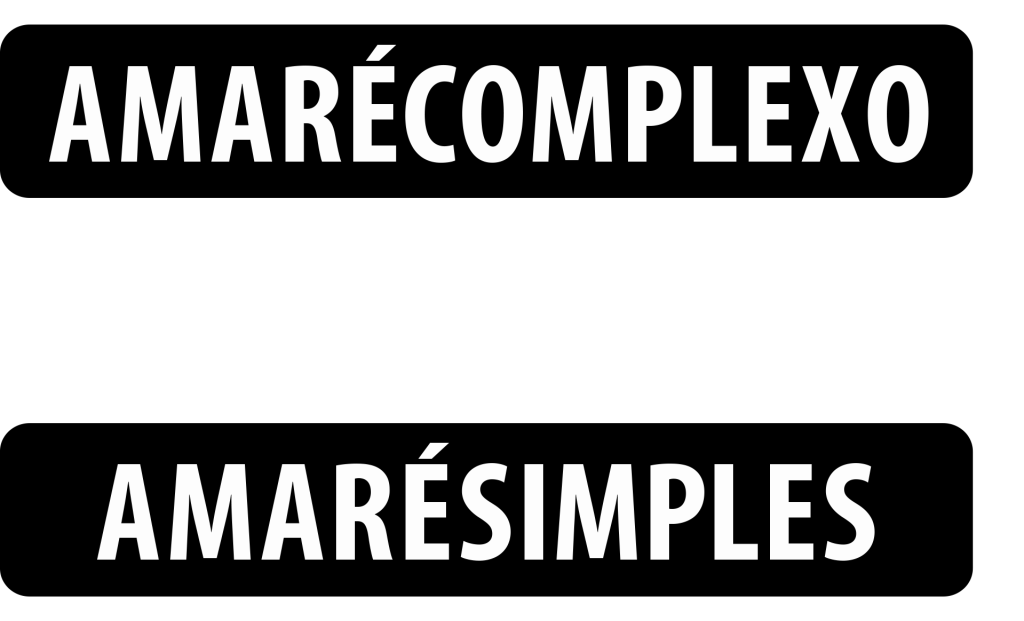
Amarésimples-Amarécomplexo

It’s very easy to love Rio de Janeiro. It’s very difficult to love Rio de Janeiro. A city that explodes with promising creativity and historical problems amidst a monumental landscape imprinted on the world’s memory. Marcos Chaves knows about this atavistic and unconditional but often disenchanted love. He knows because when he looks at the city, he sees far beyond what we can take in from the shiny surface of the beaches, the mountains and the greens bursting with the sun that beats down on Rio. There is a gap between the spaces and the words, where his passionate gaze can settle on the streets. Marcos cracks open postcards, unfolds names in their various poetics, ties together street imagery and specialized information for those who live the daily life of the visual arts.
Marcos once again proposes this dual operation of poetic enjoyment and critical reflection on the city, its spaces and its affections. When he created the Amarécomplexo/Amarésimples phrase-poems for the Travessias exhibition, held in 2011 at Galpão Bela Maré, Nova Holanda, the artist synthesized Rio’s urban conflicts with lightness and intelligence, the constitution of belonging through local self-esteem and political criticism of the social, economic, cultural and educational neglect experienced by popular communities in the city. By locating his large banners with his writings on Avenida Brasil, he added another poetic layer by transforming Maré into a tide of cars and buses passing by metallic and tired. Love, memory, politics, everything was activated at the same time by the words about Complexo da Maré, the name given to the largest flat favela in the city of Rio de Janeiro.
Frederico Coelho
